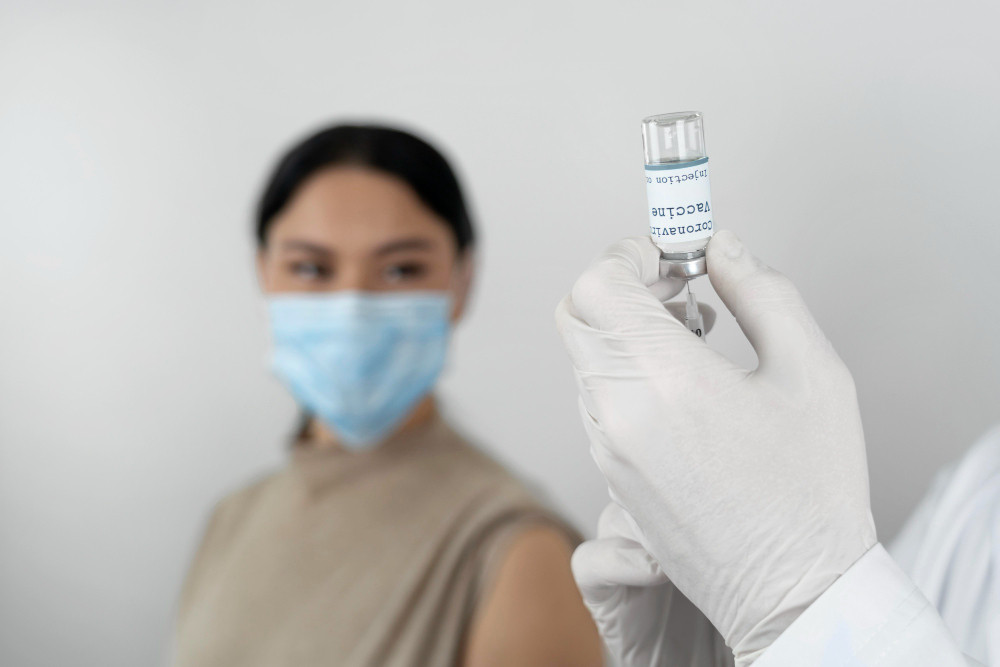Yale Study on Covid Vaccine Side Effects Fuels Online Debate

© Freepik
What is post-vaccination syndrome (PVS), and why is it sparking so much debate?
The COVID-19 vaccines have been hailed as a scientific triumph, saving millions of lives worldwide. But for a small subset of individuals, the shots have been followed by a puzzling array of chronic symptoms, leaving scientists scrambling to understand why.
A groundbreaking study by Yale researchers is now shedding light on this enigmatic condition, dubbed post-vaccination syndrome (PVS). The research is trying to uncover potential biological clues that could pave the way for diagnosis and treatment.
While the findings are preliminary, they offer a glimmer of hope for those struggling with unexplained fatigue, brain fog, dizziness, and other debilitating symptoms long after vaccination. Here’s what the research reveals—and why it matters.
What Is Post-Vaccination Syndrome?

Post-vaccination syndrome (PVS) refers to a collection of chronic symptoms that emerge shortly after receiving a COVID-19 vaccine. These symptoms, which include exercise intolerance, excessive fatigue, insomnia, and tinnitus, can persist for months or even years. While the condition remains poorly understood, Yale researchers have taken the first steps to characterize it. They analyzed blood samples from individuals with PVS and compared them to those without symptoms.
The study, published as a preprint on MedRxiv, found distinct immunological differences between the two groups. For instance, individuals with PVS had lower levels of certain immune cells, such as effector CD4+ T cells, and higher levels of others, like TNF-alpha+ CD8 T cells. These findings suggest that PVS may involve immune dysregulation, but much more research is needed to confirm these patterns.
The Spike Protein Puzzle
One of the most surprising discoveries in the study was the persistence of the SARS-CoV-2 spike protein in some individuals with PVS. Normally, the spike protein—used in vaccines to trigger an immune response—disappears from the body within days. Yet, in some PVS cases, researchers detected the protein more than 700 days after vaccination.
“That was surprising, to find spike protein in circulation at such a late time point,” said Akiko Iwasaki, a leading immunologist at Yale and co-senior author of the study. While it’s unclear whether the lingering spike protein directly causes symptoms, it could be one mechanism underlying the syndrome. This discovery also ties PVS to long COVID, where persistent spike protein has been linked to chronic inflammation and other symptoms.
What’s Next for PVS Research?
The Yale team emphasizes that their work is just the beginning. Larger studies are needed to validate these findings and explore other potential drivers of PVS. This includes autoimmunity, tissue damage, and the reactivation of dormant viruses like Epstein-Barr virus (EBV). In the study, individuals with PVS were more likely to show signs of EBV reactivation. This has been linked to conditions like mononucleosis and multiple sclerosis.
Understanding these mechanisms could lead to better vaccines with fewer side effects, as well as targeted treatments for those affected. For example, if spike protein persistence is confirmed as a key factor, therapies like monoclonal antibodies could be used to remove it and alleviate symptoms.
A Call for Compassion and Rigorous Science

While the study has sparked debate and even controversy, the researchers stress the importance of addressing PVS with both scientific rigor and empathy. “Every medical intervention carries some risk,” said Harlan Krumholz, co-senior author of the study. “Our focus must remain on understanding what these people are experiencing and finding ways to help.”
You may also like: COVID-19 on Rise: Are We Too Late For a New Vaccine?


